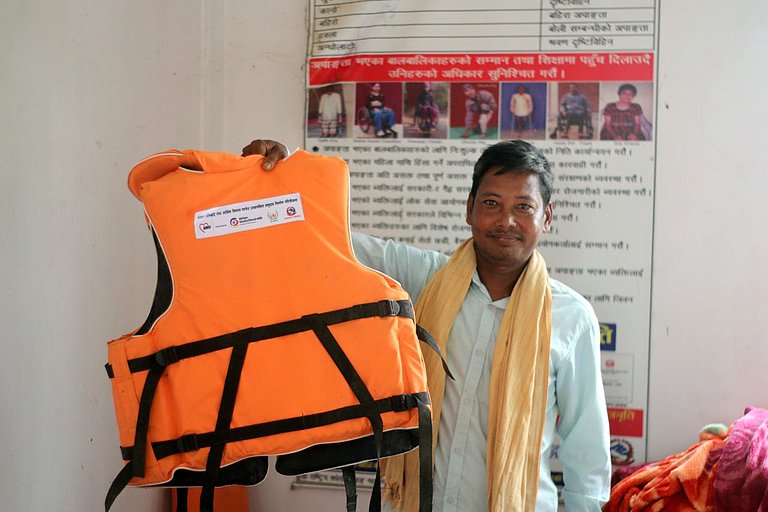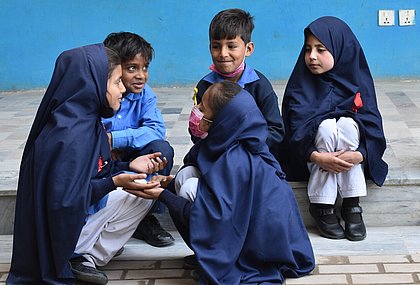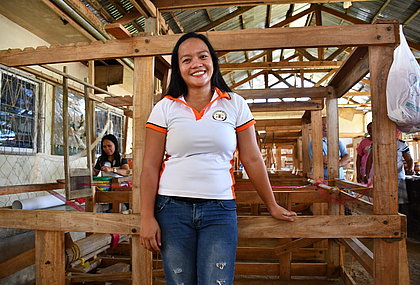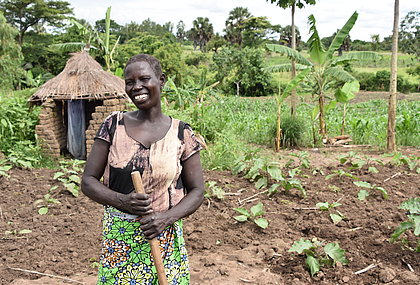Together with its long-standing Nepalese partner organisation Bheri Environmental Excellence Group, or BEE Group for short, AWO International is working on disaster risk reduction in the rural community of Raptisonari in the Banke district of western Nepal. Raptisonari is repeatedly affected by severe floods. Every year during the monsoon season, many families lose their homes and fields to floods. Farmers in the region also report increased drying up of water resources during the dry months, pests and diseases in crops, and changes in monsoon rainfall in recent years. The result has been a massive decline in agricultural production. Yet the livelihoods of most people in Raptisonari depend on agriculture and the use of natural resources.
Drawing up risk maps and establishing early warning systems
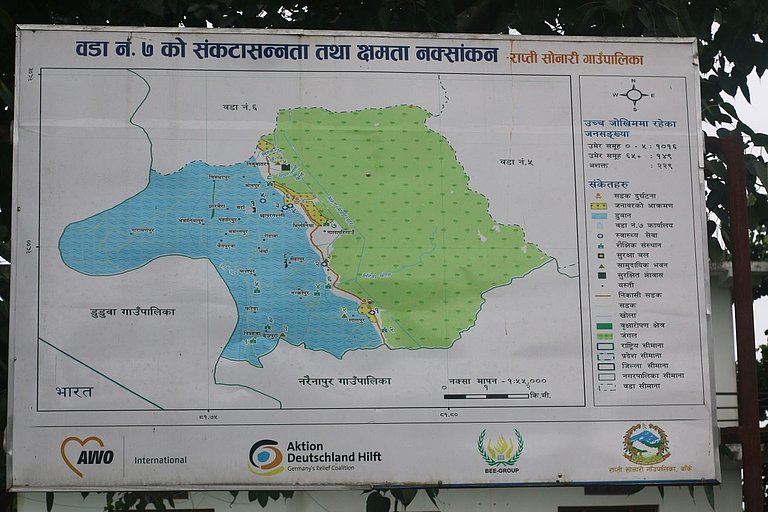
In Raptisonari, AWO International has already implemented a disaster risk reduction project together with the BEE Group from 2019 to 2021. This will now be continued in a new project phase. In cooperation with the local partner organisation, the new project will focus on strengthening capacities in disaster risk reduction and climate change adaptation. To this end, disaster action plans will be developed and a total of 20 disaster management committees will be established. The disaster management committees will sensitise communities on disaster risk reduction and climate change, establish early warning systems in communities, and collect data on people affected by disasters. Working with the committees, community mapping will also be carried out to identify hazard locations and mark potential risks, rescue routes and flood shelters. The project is also mobilising 21 response groups, similar to volunteer fire brigades in Germany. In a total of six communities, these groups will receive intensive training in early warning and disaster preparedness, damage and needs assessment, evacuation, first aid and WASH (water, sanitation and hygiene), and will be equipped to respond to and protect the community in the event of a disaster. In addition, community members are educated on various disaster risk reduction and climate change adaptation measures through public posters, street theatre, social media and radio broadcasts.
Empowerment and new income opportunities

The project will also establish 18 Women Empowerment Centres with a total of 360 members. These centres provide a safe platform for women to meet and exchange ideas on various issues of importance to the community, such as disaster preparedness and income generation. Selected farmers are also trained in organic vegetable production. In particular, the project promotes the cultivation of flood- and drought-tolerant crop varieties. Training in improved livestock management is also provided. Participants are also provided with agricultural inputs as one-off start-up capital. For example, they receive climate-resilient seed stock for goat or pig breeding, or small irrigation structures. Training in non-agricultural occupations is also provided to multiply income opportunities. Our partner organisation's staff also help communities implement adaptation measures such as bioengineering and the construction of dikes, dams, retaining walls and evacuation routes.
Projectinfo
| Project | Promotion of disaster and climate-resilient measures for sustainable livelihood in agroecological zones |
|---|---|
| Place/Region | Raptisonari Municipality, Banke district, Nepal |
| Partner | Bheri Environmental Excellence Group (BEE-Group) Nepal |
| Target group | 9,911 people from 1,867 families (direct target group). The project primarily supports disadvantaged groups such as ethnic minorities, Muslims, people with disabilities, women, widows and older people. |
| Activities |
|
| Duration | 1 August 2023 to 31 December 2025 |
| Budget | 250.000 EUR |
| Sponsor | Aktion Deutschland Hilft |
